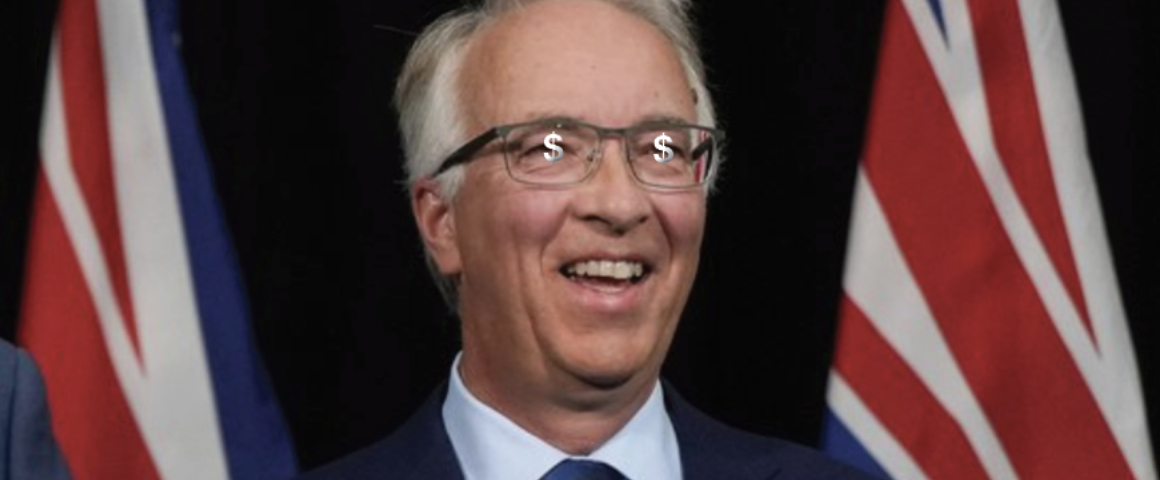Commentary by Kimball Cariou
“What just happened in BC politics?”
That’s the question across the country, after the collapse of the province’s official opposition party. Less than two months before a provincial election on October 19, what had appeared to be an easy cruise to victory for NDP Premier David Eby is suddenly a totally different campaign.
The details involve a wild mix of the west coast’s legendary quirky electoral history. BC United leader Kevin Falcon stunned observers on August 28 by announcing that his party would drop out of the campaign in favour of the BC Conservatives. Falcon’s abject surrender left dozens of his fellow candidates without a party affiliation on the ballot – other than a select few who were grabbed by John Rustad’s BC Conservatives.
At the heart of the drama lies a long-time tradition in BC politics, where the NDP wins elections only when it faces divided right-wing alternatives. Whenever the pro-business forces coalesce around a unified political vehicle, their combined voter base is large enough to defeat the NDP (or its CCF predecessor), which normally gains about 40 percent of the popular vote.
This pattern was foreshadowed in Vancouver during the 1930s. Faced with rising support for CCF, Communist and trade union candidates, the city’s business community created the so-called Non-Partisan Alliance, a municipal coalition of Liberals and Tories which won most Vancouver elections for the next seventy years.
That example was followed by several Liberal-Conservative Coalition governments starting in 1941. When that Coalition finally split, the new Social Credit Party won a plurality of seats in the 1952 election. The Socreds forged an informal “free enterprise” alliance to beat back CCF-NDP challenges. With the exception of Dave Barrett’s NDP government from 1972-75 (a time of rising left sentiments), the Socreds held power until 1991, when they lost votes to the provincial Liberals, allowing the NDP to take office for a decade.
In 2001, big business forces based on the province’s resource sector and finance capital had pushed most federal Conservatives into Gordon Campbell’s BC Liberals. That party won four consecutive elections, partly by distancing itself from overt connections to the federal big business parties, although internal tensions always simmered over nomination contests.
By 2017, the anti-working class BC Liberals were widely detested by a growing number of voters outside the NDP’s traditional areas of support. After out-maneuvering Premier Christy Clark to reach a supply-and-confidence agreement with three Green Party MLAs, NDP leader John Horgan became premier. The following three years were marked by some progressive social policy advances, which were part of the NDP-Green agreement.
But Horgan’s government never threatened corporate economic policies, particularly the resource extraction and export agenda. And then, Horgan arbitrarily broke his deal with the Greens, calling a snap election in the fall of 2020. The NDP promised that with a big majority in the Legislature, they would implement a stronger set of progressive changes, but as the BC Communists warned at the time, the opposite happened. Free to act without considering their Green partners, the NDP shifted to the centre. Any positive reforms slowed to a crawl, and massive taxpayer support to the LNG industry continued.
At first, that tactic seemed to pay off. Frustrated by the continued NDP lead in opinion polls, the BC Liberals elected Falcon as their new leader, backing his plan to rebrand the party as BC United. But Falcon’s gamble fizzled. Confused by the clumsy name change, some voters began drifting towards the much smaller BC Conservative Party, which had a far-right political base, led by anti-Indigenous racists, climate-change deniers, anti-vaxxers, fundamentalist critics of BC’s SOGI-123 (Sexual Orientation and Gender Identity) school curriculum, and opponents of scientific, health-based policies to the opioid drug crisis.
As pressure from the far-right mounted on such issues, Eby has increasingly tended to retreat – even after several campaigns to recall NDP MLAs flopped miserably. Then the BC Conservatives were joined by Rustad, formerly a key figure in Campbell’s Liberals, and a few BC United MLAs. Given massive coverage by the corporate media, Rustad’s small organization ballooned as voters began to identify his party with so-called “populist” Pierre Poilievre’s federal Tories. For well over a year, Falcon’s response was an attempt to marginalize his rivals, pointing to their lengthy record of extremist statements.
As antipathy to Justin Trudeau and the federal Liberals peaked, Falcon’s strategy failed to gain traction, but he kept it up until his surrender. The news was met with jubilation by pro-business groups, celebrating a unified right-wing alternative to the supposed left-wing NDP “threat.”
It remains to be seen if those celebrations are premature. Rustad’s team is loaded with Trump-style bigots whose outlook is a tough sell in much of British Columbia. With considerable justification, the NDP are branding their opponents as bitterly reactionary and anti-working class. But for now, the BC Conservatives have momentum, fuelled by growing support for Poilievre at the federal level.
The next few weeks are likely to see a tide of vitriolic anger on the campaign trail. The only voice presenting a comprehensive progressive platform is the Communist Party of BC, which is running three candidates, in Vancouver-Strathcona, Surrey-City Centre and Victoria-Swan Lake.
Kimball Carious is BC leader of the Communist Party of Canada
Look for the full Communist Party platform at the party’s website. For more information, call the campaign at 604-254-9836, or visit the office located at 706 Clark Drive, Vancouver (Unceded Coast Salish Territories).
Support working-class media!
If you found this article useful, please consider donating to People’s Voice or purchasing a subscription so that you get every issue of Canada’s leading socialist publication delivered to your door or inbox!
For over 100 years, we have been 100% reader-supported, with no corporate or government funding.




